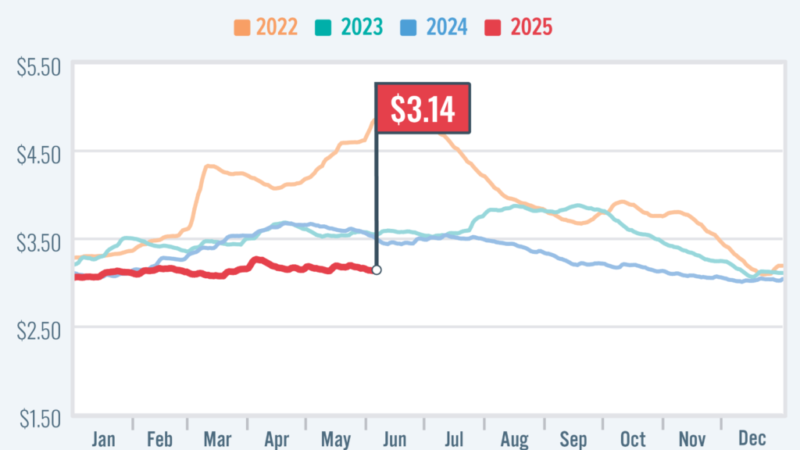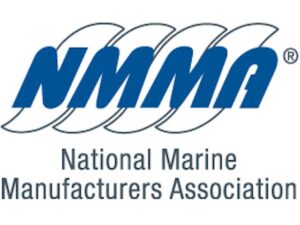RVIA Panel Discussion: RV Industry will ‘Survive & Thrive’ – RVBusiness – Breaking RV Industry News
PHOENIX, Ariz. – Despite the challenging and uncertain times at the moment, the RV industry will “survive and thrive,” said Forest River CEO Doug Gaeddert Wednesday (March 5) during the RV Industry Association (RVIA) Leadership Conference, which concludes today at the Sheraton Grand at Wild Horse Pass in Phoenix, Ariz.
Gaeddert, who was joined on stage for a Leadership Panel by Lippert SVP of Customer Support Services April Klein-Carroll and Jarrod McGhee, CEO of Fun Town RV, said the industry has been through difficult times before but it has always emerged because it is resilient.
“We can take the punches that are going to happen here over the next 30, 60 days, 90 days – whatever – and we’ll be resilient. We’ll still be there and we’re going to survive and thrive together, regardless of which side of the border you’re on. It’s an industry for the ages,” said Gaeddert.
“So, we’re in position right now, I think, for a nice gradual run – call it 10 years to make the math easy,” he continued. “We’re going to have a half million units a year that’s sustainable in just a few years down the road. I think we’re looking at 350,000 give or take this year, but I don’t think it’s going to be that long before our industry is going to be looking at a half million units per year – and that’s sustainable with the right metrics and the right fundamentals in place, and improved quality, improved customer experience, improved storage options. We’re here for the long haul.”
Moderated by RVIA President & CEO Craig Kirby, the panel discussion touched on many topics, including each panelist’s leadership style and the influences that shaped that style, their company’s culture, challenges facing the industry and advice they would offer others.
What follows is an edited account of the discussion.
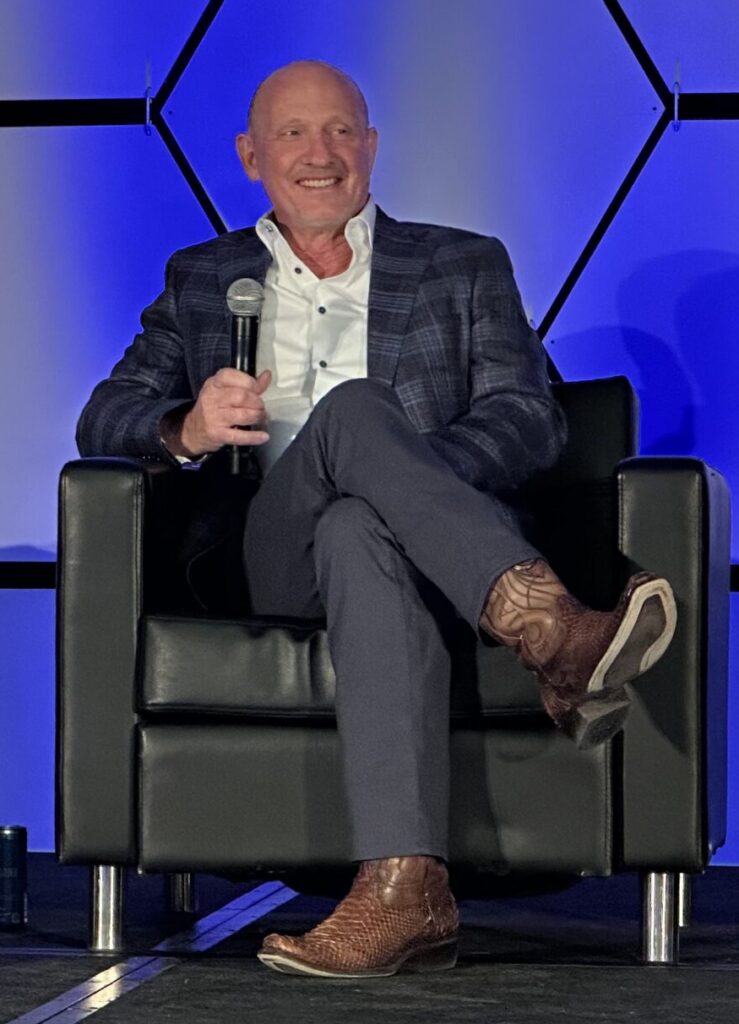
Kirby: Doug, how are you leading the company during this (CEO) transition and what is your vision for the company today and in the future?
Gaeddert: We’ve probably become more project focused than we’ve ever been in the last few months. And I’m going to tell you – those of you who were in Vegas with RVDA, you heard some of those – but there’s definitely been an uptick, and a little bit more collaboration on projects to where we see if we can’t handle more at one time. And it’s all about teaming up.
The first sit down I had after things were going to change, it was interesting, because the very first question was, “Doug, what makes us different than those companies that we compete with? What’s our biggest advantage?” And I said, “It’s very simple. People and culture.” That part has always been a strength for us. That’ll continue to be a strength for us.
We want to be everybody’s best partner, whether it is our employees, whether it’s our vendor partners, whether it’s obviously our dealer partners, whether it’s the consumers, owner, our products. Our goal has been, and will continue to be to identify the partner and look at how we can unequivocally be your best partner.
Kirby: Jarrod, how do you ensure staff drives home your culture with your customers across all your locations now? You’re known as the mayor of Fun Town, so how does that come into play as well in the culture standpoint?
McGhee: Well, actually it’s the “Mayor of all things fun.”
One of the first things when I started building the team was I wanted everybody to understand the customer belongs to the entire group. Our entire team is responsible for keeping that customer happy.
You’ve got to understand this customer is coming in to spend their discretionary income. They could go to Disney World or stay in a hotel just as easy as buying an RV. So, when that customer takes that part of their money they got from their retirement or their vacation money they’re spending with us, we need to value it, and we need to treat them in a way that we would want to be treated on our vacation.
I mean, the worst thing you can do is put somebody in an RV and have them go out there and have a flat tire and find out they don’t have a spare. Or they bought an RV that the air conditioner doesn’t technically cool down the unit.
We don’t want to be that kind of company. We want to be able to look in the mirror and be proud, and be proud of the products we’re selling.
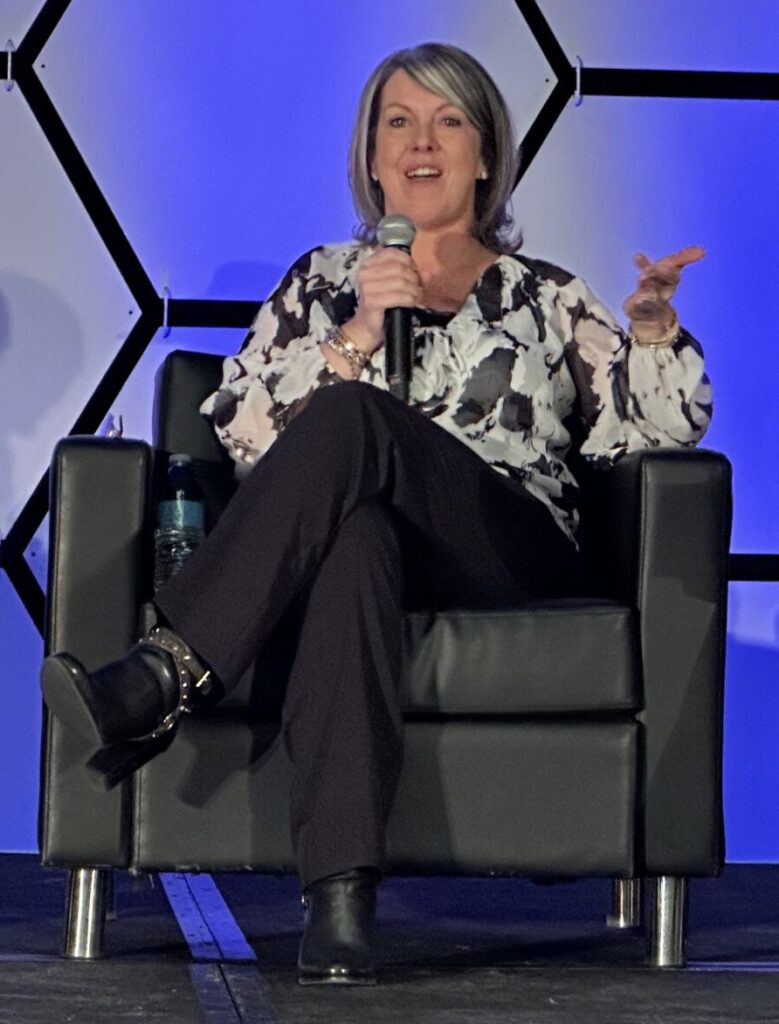
Kirby: April, how do you define your leadership style and has it changed over time?
Klein-Carroll: Yeah, I mean, with 40 years in this industry, of course it’s changed over time. … I believe that you can absolutely learn something from everybody that you’ve come into contact with and that those experiences change you as leader and teach you either what not to do, or what to do more of.
And I also think that it’s really important to always look at yourself on decisions that you make, actions that you take, and the things that you’re doing as if it’s up on a billboard for everybody to see, including your boss or the president of the company or whoever, to just make sure that your values and objectives are aligned with those that you’re serving.
Kirby: Doug, back to you. The industry lost an icon and Pete Liegl, how did Pete impact your leadership style?
Gaeddert: Anybody who’s been around Pete knows that he would push you to see how convicted are you on what you wanted to get done. Whether it was put up a new building, whether it was a call center – it didn’t matter what it was – there was going to be a CapEx situation or involved personnel. He’d push it and he always called it having “Fire in the belly.” And if you didn’t really believe it, if you didn’t convince him, it wasn’t going to happen.
But, if you were willing to go to the mat with him on something and you believed it enough, he was all about it. It might take two days for him to come around, but he’d say “All right.”
Kirby: Jarrod, I’m going to give you a magic wand and you’re in charge of the RV industry. What changes would you make to elevate the industry in customer service?
McGhee: The very first thing I would do is I would take a problem with an RV before a customer owns it out of the warranty bucket and put it in the defect bucket where it belongs. And had the whole industry realize if we keep building products with defects, it’s going to slow down the turns. You slow down the turns, everybody’s going to make less money.
We’re kidding ourselves by putting a unit that just comes offline from the factory – whichever factory built it – and saying it has a warranty issue. No, it has a defect issue. That defect should never reach that customer. That is where our big disconnection is right now.
Kirby: April, how do you approach staffing in Lippert to ensure the team is aligned with the company vision?
Klein-Carroll: I think for us, culture is really, really important – obviously. And there’s two things that we do that are a little outside of the scope of what you might consider a traditional HR. One is that we constantly are tapping people to bring in people that are good. Good people know good people. So, we don’t get really funny about nepotism or someone being a friend, working together, because generally those teams work together well and you can grow them into whatever you need them to be.
We are very focused on character. I mean, obviously we hire for skill in certain things and you want people to have the aptitude to learn for the position that they’re being considered for. You can train just about anybody for anything if they have the aptitude and good character.
But character is something with most people that you just can’t change. They can change for a little while, but when you have somebody who’s toxic, they ruin an organization.
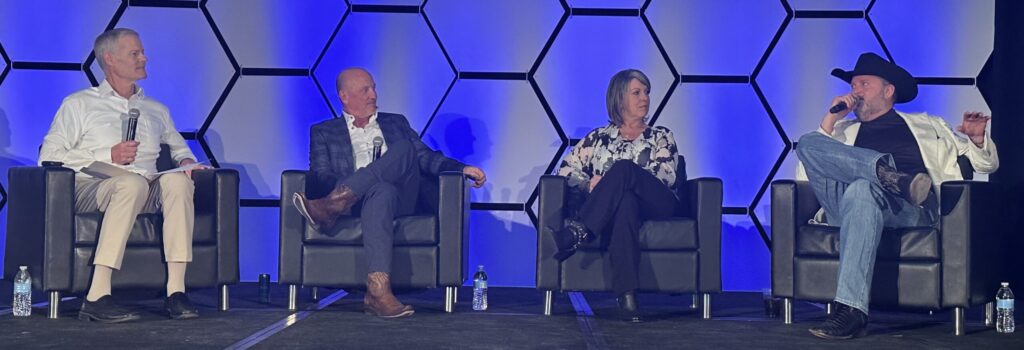
Kirby: Jarrod, what’s one piece of advice you would give to the people in this room?
McGhee: Well, I say this a lot: Things are never as bad or as good as they seem in the moment. Right now, things seem like they’re tough. But these challenges are just opportunities. You need to look at it that way.
What you do here forward is going to set your career up. You literally could think of that new thing, create that new process, come up with that new piece of software, figure out a way to do something right now that may change the industry and the opportunities sitting right in front of you. Or you can wake up every day and think about how bad things are and you’re not selling as much as the day before.
So, I’m telling anybody out there that is starting, look at it as an opportunity every day. These challenges aren’t as bad as they seem. If it was easy, anybody could be doing it.



